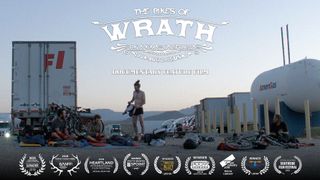Few novels are able to distil an immense shift in the tide of human history at particular times of crisis. One novel which succeeds brilliantly in conveying the desperate plight of American farmers in the ‘Dustbowl' of Oklahoma, Texas and Kansas during the decade of the 1930s, is, of course, John Steinbeck’s magisterial The Grapes of Wrath. Steinbeck told the moving tale of ‘The Okies’, moving across the United States in beaten trucks and jalopies to the promised land of California. They suffered much hardship and were seldom made welcome by their fellow citizens who were also struggling with the realities of the Great Depression.
Steinbeck’s novel is as much a triumph of the American Spirit as it is an eloquent tale of the capacity of humanity to confront great odds with courage and determination.
Steinbeck observes:
And here’s a story you can hardly believe, but it’s true, and it’s funny and it’s beautiful. There was a family of twelve and they were forced off the land. They had no car. They built a trailer out of junk and loaded it with their possessions. They pulled it to the side of 66 and waited. And pretty soon a sedan picked them up. Five of them rode in the sedan and seven on the trailer, and a dog on the trailer. They got to California in two jumps. The man who pulled them fed them. And that’s true. But how can such courage be, and such faith in their own species? Very few things would teach such faith.
The generosity of Americans met along the journey, including some of the poorest citizens, is an amazing testament to the warmth of welcomes extended to strangers, including those from a distant land.
A group of five young Australians seemed to share an abiding respect for The Grapes of Wrath. As a consequence, these young Australians retraced the journey of the Joad family by bicycle from Sallisaw, Oklahoma to Bakersfield, California. In so doing, they have made one of the great Australian documentary films, entitled The Bikes of Wrath. This moving cinematic experience demonstrates beyond doubt that some elements of America have not changed since the Great Depression. In particular, the generosity of Americans met along the journey, including some of the poorest citizens, is an amazing testament to the warmth of welcomes extended to strangers, including those from a distant land.
Cameron Ford and Charlie Turnbull have made a remarkably perceptive yet enjoyable film. True, Interstate 40 is not the original dusty Route 66, but much in the movie is faithful to the Joads’ pilgrimage, including the insistence on limiting travel resources to just over US$400. This is jeopardised by generous locals who press donations upon them, to become a part of their trek. The young Aussies plan to busk to replenish their war chest but this is overtaken by American generosity.
The Aussie bikers have little doubt they will make California. For the Joads, it was more problematic:
The ancient overloaded Hudson creaked and grunted to the highway at Sallisaw and turned west, and the sun was blinding. But on the concrete road Al built up his speed because the flattened springs were not in danger any more. From Sallisaw to Gore is twenty-one miles and the Hudson was doing thirty-five miles an hour… Al, at the wheel, his face purposeful, his whole body listening to the car, his restless eye jumping form the road to the instrument panel. Al was one with his engine, every nerve listening for weakness, for the thumps or squeals, hums and chattering that indicate a change that may cause a breakdown. He had become the soul of the car.
For the Aussies, it is the bikes which cause concern, with trailers being abandoned as guitars are sold off. But they forge ahead.
At one point, they come across the homeless Joe, who appears to be wandering, looking for death. A rescue ensues, and the local police and ambulance respond with care. The Joads actually experience death. The Australian bikers intervene to prevent a vulnerable individual being lost.
The Bikes of Wrath is a gem of a film: faithful to its inspiration of 1939 and respectful of the hard experiences of those who travelled west generations ago. For those who are fascinated by the mosaic of American history and culture, the film affords both purpose and passion, worthy of John Steinbeck.
The Bikes of Wrath is available to watch on ABC's iView.




